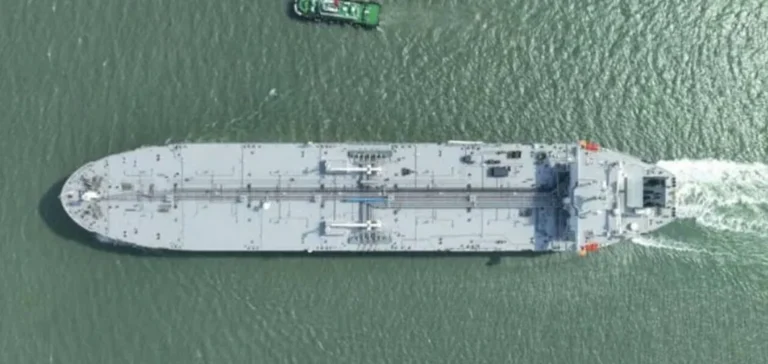A crude oil tanker from Syria has docked at the Italian port of Trieste after a partial stop in Sardinia, marking the first crude export from the country in 14 years. According to S&P Global Commodities at Sea data, the Nissos Christiana vessel, operated by Kyklades Maritime Corp., departed from Syria’s Tartous port on September 1 with around 640,000 barrels of heavy sour crude on board.
An initial cargo of 200,000 barrels was unloaded on September 10 at the Sarroch oil terminal, located on the southern coast of Sardinia. The remaining 440,000 barrels are currently moored at the SIOT terminal in Trieste, according to maritime tracking data. The vessel’s operator declined to comment.
Vitol and the Sarroch refinery
The Sarroch refinery, with a capacity of 300,000 barrels per day, is operated by Saras, which is owned by trading firm Vitol. It is Italy’s second-largest refinery. Vitol did not comment on the delivery. In August, the Sarroch terminal received an average of 136,000 barrels per day, mainly from Libya and Turkey. Russia had also supplied volumes until the European Union’s mid-July ban on seaborne imports of Russian crude and refined petroleum products took effect.
Syria’s return to international oil markets comes shortly after a partial lifting of US sanctions targeting the Syrian energy sector. The easing in July allows commercial operations with entities complying with US restrictions.
Limited production capacity
Before the outbreak of civil war in 2011, Syria produced between 380,000 and 400,000 barrels per day, with exports primarily directed to Mediterranean markets. Today, actual production is estimated at between 80,000 and 100,000 barrels per day, due to widespread infrastructure damage including pipelines and refineries.
Minister of Energy Mohammed al-Bashir stated that current oil fields have a capacity of up to 200,000 barrels per day but cannot operate at full potential. High costs to rehabilitate damaged infrastructure remain a major barrier to full recovery.
Sales terms and crude pricing
The crude shipped from Tartous was sold under FOB (Free on Board) Tartous terms, priced using a five-day average of Platts-assessed Dated Brent spot prices, part of S&P Global Commodity Insights. On the vessel’s departure date, September 1, Dated Brent was assessed at $68.91 per barrel, falling to $67.60 by September 15. No official figures were disclosed regarding Syria’s revenue from the shipment.
Prior to 2011, Syria published official selling prices for its Syrian Light and Syrian Heavy grades, though these assessments were discontinued in 2022. Since 2012, Syria has been a net oil importer, relying on domestic refining for internal consumption.






















